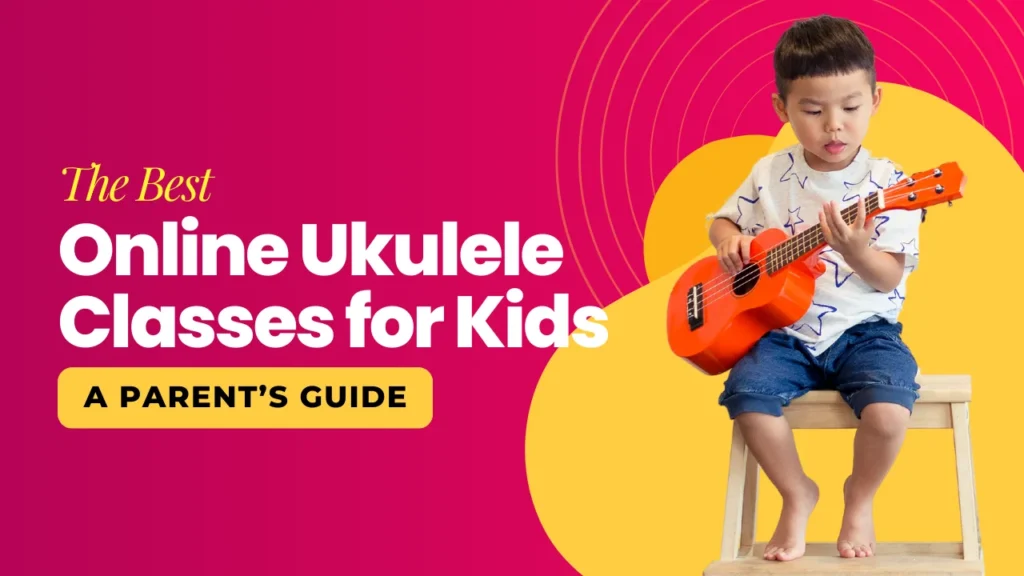Music and Brain Development: How Ukulele Lessons Help Kids Learn Faster

Table of Contents
The Science Behind Music and Brain Development
Music stimulates various regions of the brain, enhancing cognitive skills such as memory, problem-solving, and language processing. Studies indicate that children who learn to play an instrument tend to perform better in subjects like mathematics and reading.
When kids engage in musical activities like ukulele lessons, their brains work harder to process sounds, recognize patterns, and coordinate hand movements—all of which strengthen neural connections. This process helps them learn and retain new information more effectively.
Benefits of Ukulele Lessons for Brain Development
1. Enhances Memory and Concentration
Playing the ukulele requires children to memorize chords, strumming patterns, and melodies. This strengthens their ability to retain information and improves concentration, which is beneficial for academic learning. The discipline of consistent practice also fosters focus and patience.
2. Boosts Creativity and Self-Expression
Music encourages kids to express themselves freely. The ukulele, with its cheerful tones, allows children to explore their creativity by composing simple tunes or improvising melodies. This ability to think outside the box extends to other areas of learning, such as writing and problem-solving.
3. Improves Coordination and Motor Skills
Playing an instrument like the ukulele requires coordination between both hands, as well as synchronization between hearing and movement. This enhances fine motor skills and hand-eye coordination, which can benefit tasks like writing, typing, and sports activities.
4. Strengthens Language and Communication Skills
Learning music is closely linked to language development. The rhythmic and tonal aspects of ukulele playing help kids develop better speech patterns, pronunciation, and listening skills. Many studies have found that children exposed to musical training tend to excel in language-related subjects.
5. Reduces Stress and Enhances Emotional Well-being
Music has a calming effect on the brain, reducing anxiety and improving mood. Playing the ukulele can be a stress reliever for children, helping them develop emotional resilience and a positive mindset.
Why Choose Online Ukulele Classes?
With the rise of digital learning, online music classes have become a convenient and effective way for kids to learn the ukulele. The Gandharva School of Music offers some of the best online ukulele classes, providing:
- Expert Instructors: Professional musicians who guide students step by step.
- Flexible Schedules: Classes that fit around school and other activities.
- Interactive Learning: Engaging video lessons and live sessions to keep children motivated.
- Personalized Feedback: One-on-one guidance to help students progress at their own pace.
How to Get Started with Ukulele Lessons
Starting your child’s ukulele journey is simple. Here’s how:
- Choose the Right Ukulele – A soprano ukulele is ideal for young beginners due to its small size.
- Find a Reputable Online Class – Look for structured courses like those offered by the Gandharva School of Music.
- Set a Practice Routine – Encourage daily short practice sessions to develop consistency.
- Make Learning Fun – Use games, rewards, and favorite songs to keep kids engaged.
Final Thoughts
The ukulele is more than just an instrument—it’s a gateway to enhanced learning, creativity, and emotional well-being. By enrolling your child in the best online ukulele classes, you are giving them a fun and effective way to develop essential life skills. So why wait? Let music be the key to unlocking your child’s full potential!
Would you like to explore online ukulele lessons for your child? Check out the Gandharva School of Music and start your musical journey today!

